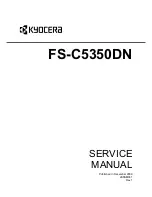
Just in case …
This glossary contains terms you may encounter when discussing or reading about fax
machines. Please use these definitions for reference only.
24-hour format — Also called military format. A format for keeping time that does not use
a.m. or p.m. to distinguish between morning and afternoon. In the 24-hour format, one o’clock
in the morning marks 1:00, noon marks 12:00 and midnight marks 24:00. To calculate the 24-
hour format, add 12 hours to all times after noon.
For example, 1:30 p.m. would be 13:30 in the 24-hour format; 10:45 p.m. would be 22:45 in the
24-hour format. And 11:15 a.m. would be 11:15 in the 24-hour format.
A3, A4, B4 — Standard stationery sizes defined by the International Standards
Organization, an agency of the United Nations. See also Paper sizes.
ADF — Automatic document feeder. See document feeder.
Alternate number — The number your machine dials after all attempts to the regular
number fail. The user programs this alternate number, if so desired.
Answering machine — See
TAD
.
Autodialing — Enables user to store preprogrammed telephone numbers in the unit’s mem-
ory. Storage capability varies from unit to unit.
Automatic fallback — The ability of a fax machine to slow down (“fall back”), when commu-
nicating with another fax which is communicating at a slower rate.
Automatic reduction — Many Imagistics fax machines will automatically reduce the
size of documents being transmitted to accommodate the effective printing width of the
receiving unit. For example, this allows a fax machine with a 10
″
(256 mm) scanning width to
send an image 10
″
(256 mm) wide to a unit with an 8.3
″
(210 mm) print width. The receiving
fax machine will receive a reduced-size printout of the complete image.
Bit — The smallest unit of information in a computer. Some Imagistics fax machines,
which are actually computers “dedicated” to telecommunications, allow users to change bits of
information to provide or cancel features through software settings.
Bits per second — See bps.
Black density — Also called black coverage. The amount of non-white area on a page. For
example, most regular office correspondence has a black density well under 10%, due to the
presence of margins, spaces between words, spaces between lines and paragraphs and even
spaces within letters. However, drawings and photographs have a much higher black density,
sometimes approaching 100%. The higher a page’s black density, the more slowly a fax
machine sends it.
Broadcast — A fax transmission in which a single document is sent to more than one loca-
tion.
bps — Bits per second. Used to express the speed of transmission of data. Because fax trans-
mission treats a document as a graphic image rather than as a series of alphabetic and
numeric characters, bps does not correspond to the number of characters transmitted per sec-
ond.
Byte — A group of digital elements, usually sent as eight bits to the byte.
Call reserve — Also called call request. An
ITU
-
T
standard fax feature which allows a user to
request voice communication prior to, during or after transmission.
Call-waiting service — An optional telephone company service that alerts you to another
incoming call when the phone is already in use. Call-waiting signals often cause interruption
of fax transmission or reception.
Caller
ID
— Optional service provided by your local telephone company that allows you to
see a display of the number (phone or fax) that is calling.
CCITT
— See
ITU
-
T
.
CCD
,
CIS
— Charged coupled device, contact image sensor. Two types of scanning mechanisms
used in some Imagistics fax machines. The
CCD
“reads” fluorescent light bouncing off a
document. The
CIS
uses a flat bar of light-emitting diodes (
LED
s).
Command queue — The “list” your machine keeps of all its pending commands.
Command number — The number your machine gives to each “job” it is programmed to
complete. You must know the command number in order to cancel or change any of the
machine’s jobs that it stores.
Compatibility — The term “compatible” describes the ability of separate things to function
together. Your Imagistics fax machine features
ITU
-
T
Group 3 compatibility, the modern
standard for worldwide communication.
Confidential transmission — See SecureMail.
Confirmation report — See
RCR
and
TCR
.
Continuous polling — See Polling.
Copy mode — Allows your fax machine to be used as a convenience copier.
Cover page (automatic) — A small, user-created message; can be the first page of every
transmission.
Database polling — See Polling.
Data compression — Used in digital fax machines to speed transmission. See also Digital
fax,
MH
and
MSE
,
SMSE
.
5.16
Glossary












































